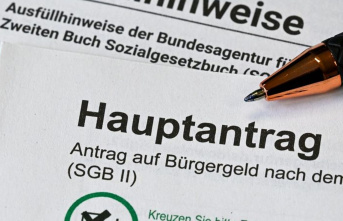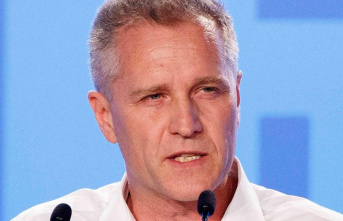The young yemeni Know write in English when he plunges his discouragement: “How hard and tough is the life / ups and downs in eternal loops empty / dreams so sweet so bitter reality / what are the days of criminals or moments summit?”. His poems are a sort of journal of a year and a half trapped in Nador, the region's capital moroccan border with Melilla, where he arrived in June 2018, after leaving their country at war, with the intention of enter in the autonomous city or cross the Mediterranean towards the Spanish coast. “We came three brothers. Two are now in Spain, I am the oldest and the only one that has not managed to cross,” she laments.
MORE INFORMATION
Spain reduced to 50% irregular migration, but it grows the way to the Canary islands neighbors are mobilized to provide shelter for the refugees with: blankets and food for the families who sleep in the rough Kids on the street in Madrid and 479 free beds“we are no longer welcome”, illustrates Abdelgadar, syrian father of 29 years, sitting on the terrace of a fast food restaurant that welcomes you to the remodeled promenade of Nador. His wife, Batula, listening to while you tuck the baby Abdelbasset, of five months, the youngest of a brood of three sons born in exile. A month ago, the whole family came to Morocco through Oujda, on the border with Algeria, after spending two years working there. Lead fleeing from 2014, when they came out of Aleppo to Turkey, in full battle for control of the syrian city. “We have come here to go to Spain”, confirms unequivocally. “We were up to 10 hours walking with the kids and, when we arrived, we were not allowed to go to Melilla, we don't have any place to stay or to return to, we are caught in the middle”, regrets this sirius.
Commitment of the host
Spain has agreed to host, along this year, up to 1,200 syrian refugees settled in camps in Lebanon, Turkey and Jordan. The goal, similar to that which has been assuming the European Union from 2015 —with a degree of compliance with disparate—, is to relieve the situation for more than half a decade in countries of the middle East neighbors to scenarios of conflict, with more than five and a half million of people in exile. While, on the other side of the border melillense, in the back room of a moroccan, hundreds of people try every day to circumvent the cordon of security increasingly tight due to the collaboration between the two countries.
Batula, 28 years of age, already leads two attempts only in December. The first time, tried to break through the border crossing of Beni Hinking itself, camouflaged by dozens of moroccans who every day queue up at the door to work or to buy in Melilla. The moroccan gendarmes was thrown out back in the first barrier without asking even the documentation. “You recognize Me as a syrian by my appearance, by the same expression of my face,” he says. On the second occasion, he paid 200 euros for a false passport that gave him an intermediary. Again, the agents detected the charade. Others, such as Mohamed Hassan, had more luck. This yemeni managed to reach Melilla to ask for protection following pay 4.400 euros to traffickers, according to tells to the doors of the Centre for Temporary Stay of Immigrants (CETI) of Melilla.
This family already has left around 3,000 euros only to come to Nador, you pay 15 euros per day for the hotel in which they live the five and have no more money than the father managed to save after two years of working in Algeria. Its members are trying to not spend, because their only goal is to pay for crossing the border melillense. “We endure hunger, we have to save the money to pay the intermediary, but only give us long”, says Abdelgadar. “The only work of the smugglers is to take the money to the people”, he complains.
The family is not registered as an asylum seeker in Morocco: the kids don't go to school, or have health care or economic allocation that helps you with the accommodation. Unhcr, the UN agency for refugees has registered more than 5,500 asylum-seekers from countries of the middle East until may of 2019. More than 5,000, are syrians, the rest of Iraq, Palestine and Yemen. In Morocco, where this entity is working with the Government to implement a national policy on asylum up to now non-existent, applicants cannot work legally and nearly move with freedom. Their status is not recognized and are considered irregular immigrants. In Nador, one of the points with the highest concentration of refugees, the agency even has an office and everything must be managed through the capital, Rabat.
Abbas, a yemeni has a degree in Pharmacy in India, has received a total of 900 dirhams (90 euros) for one year registered as an applicant since he arrived in November of 2018. “We are not here to depend on the help,” responds his companion. “We just want to get to a country that will accept us to work and to legalize our situation,” he says.
The UN considers the conflict in Yemen as “the largest humanitarian crisis in history.” 80% of the population need help, and there are nearly five million idps.
you Know you have counted the times that almost succeeded in entering Melilla: 63. “Three of them, on the same day, for the Neighborhood Chinese”, reminds about the first attempts through the step of a Good Neighbourhood, where every day they cross thousands of people engaged in the transportation of the equipment, the smuggling across borders permitted by the Spanish authorities and the moroccan. “[The moroccans] do you detect, you stop and tell you that you have to go by [the international step] Beni Hinking”. Of the three brothers who arrived in 2018, the younger made himself slipping into the hubbub of the tail just a week after it has been planted in Morocco. The medium, more athletic, took no or 24 hours to jump one of the walls that fortified the perimeter of Beni Hinking and running up to the fence on the Spanish side to seek asylum.
“The only way to reach Europe is by Melilla”, said the poet amateur that holds the frustration in such verses as this: “As a beast caged observes its feast of food / can't hunt for what it definitely is there / it an eternal sincerity after roads monumental / no substance fading from the pages of fate”.
Melilla is the fourth largest recipient of asylum-seekers
Only until November, Unhcr, the UN agency for refugees recorded the arrival in Melilla of more than 800 syrians, 300 palestinians and 200 yemeni applicants for international protection. The fact is, more than a third of all applications filed by those nationals in Spain, according to provisional figures from the Ministry of Interior. Although the arrival has softened with regard to 2018, at the end of November of this year, the autonomous city of only 86 000 inhabitants cloistered in the moroccan coast repeat at the fourth position of Spanish territories receivers of asylum applications, only behind Madrid (49.323), Barcelona (10.973) and Valencia (4.702) and ahead of Malaga (3.406).
“Now there is too much pressure in the border,” explains the young yemeni to Know; “the passports [counterfeit] are not working”. The alternative is to jump the wall, a technique that the smugglers also used to introduce children moroccans in the Spanish territory.
In recent months, the obvious reinforcement at the border crossing of Beni Hinking, in step with Melilla, has complicated these crossings underground. And the sea has ceased to be an option, according to the yemeni girl, because this route is now packed by smugglers who, before the harassment of the navy moroccan, give priority to sub-saharan africa that can't even get close to the land border.
Date Of Update: 03 January 2020, 03:00










